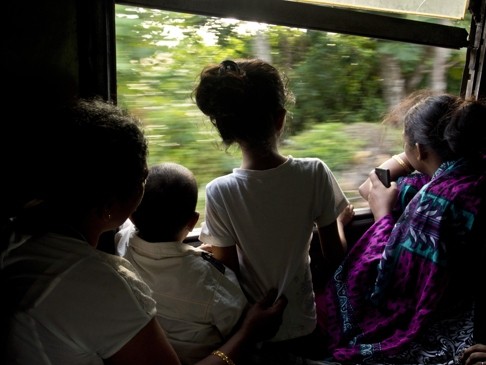
Book review: imagining the worst crime a mother can commit
Sri Lankan author Nayomi Munaweera’s second novel is a beautiful tale about a heinous act, a work so hypnotic that it’s impossible to look away

by Nayomi Munaweera
St. Martin’s Press

In her new novel, Sri Lankan author Nayomi Munaweera takes on the subject of motherhood – and completely defaces it.
What Lies Between Us, Munaweera’s second novel, features a main character who commits a horrendous violation of society’s unspoken code that raising a child is a woman’s most sacred task.
In the opening of the novel, Munaweera drops hints that the main character, Ganga, has been institutionalised for an unspecified crime. She wants to tell her story.
Like her acclaimed first novel, Island of a Thousand Mirrors, this story is set in her native Sri Lanka. She employs elegant prose to depict the lives of both the privileged class and those who serve them.
SEE ALSO: Eka Kurniawan’s second novel Man Tiger is arresting and lyrical
From the outset, the narrator, Ganga, asserts that this is not just a confession, but a much more important statement. Ganga states, “This is a history of what we do to one another. This is the story of what it means to be both a child of a mother and a child of history.”
The author then carefully unfolds a vivid account of Ganga’s life growing up as an only child in an affluent yet troubled home.
Munaweera pulls off an impressive narrative feat: she presents a story that is both illustrative, and yet painstakingly rife with secrets.
Ganga’s parents have an unstable relationship marked with shouting matches in private and prickly behaviour in public. For Ganga and the reader, it is hard to decipher who is the aggressor. In some instances, the father comes off as condescending and cold toward his wife. One of the servants in the home explains to Ganga that her father came from money while her mother did not, and it’s not so easy for a woman to adapt.

It is that urge to suppress secrets, pain and conflict that haunts Ganga for the rest of her life and leads her to make a catastrophically bad decision.
But before the novel arrives at that fateful incident, the story takes us through Ganga’s coming of age both in Sri Lanka and later in the United States, where she moves with her mother as a teenager. The story follows Ganga into adulthood. She becomes a nurse, working and living in San Francisco. She unexpectedly falls in love and becomes a wife and mother.
Ganga is surprisingly self-reflective despite her inability to confront the secrets that consistently rattle her. At one point, she states, “I had long longed for normalcy. I had wanted only these things – a marriage, a shared place, the serenity of a long-lived love. But normalcy is a miracle, not granted to all who ask.”
The novel is rich with artfully intricate language and descriptions. Munaweera has managed to craft an alluring, complex and beautiful tale centred on a heinous act. While it’s clear a tragic ending is inevitable, the novel carries an urgency and hypnotism that makes it impossible to look away.
Tribune News Service
